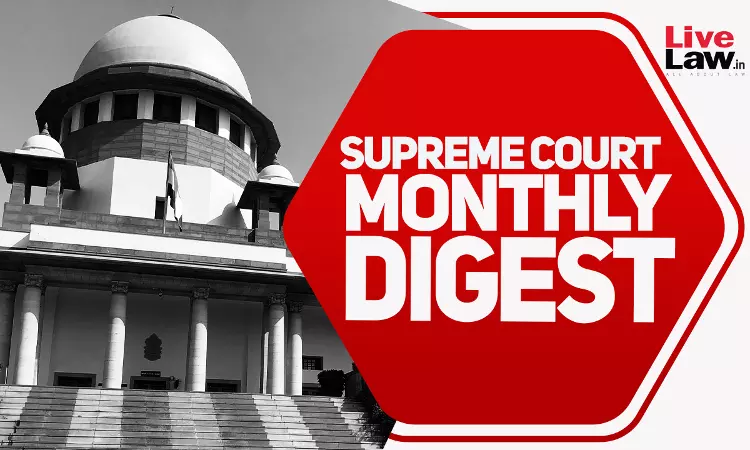- Home
- /
- Supreme court
- /
- Supreme Court Monthly...
Supreme Court Monthly Digest-January 2024
LIVELAW NEWS NETWORK
11 Feb 2024 10:44 AM IST
Administration of JusticeIn the instant case, we find initiation of criminal proceedings before a forum which had no territorial jurisdiction by submitting incorrect facts and giving frivolous reasons to entertain such complaints. A closer look at the respondent's actions reveals more than just an inappropriate use of jurisdiction. The core issue of the dispute, which involves...
Next Story



